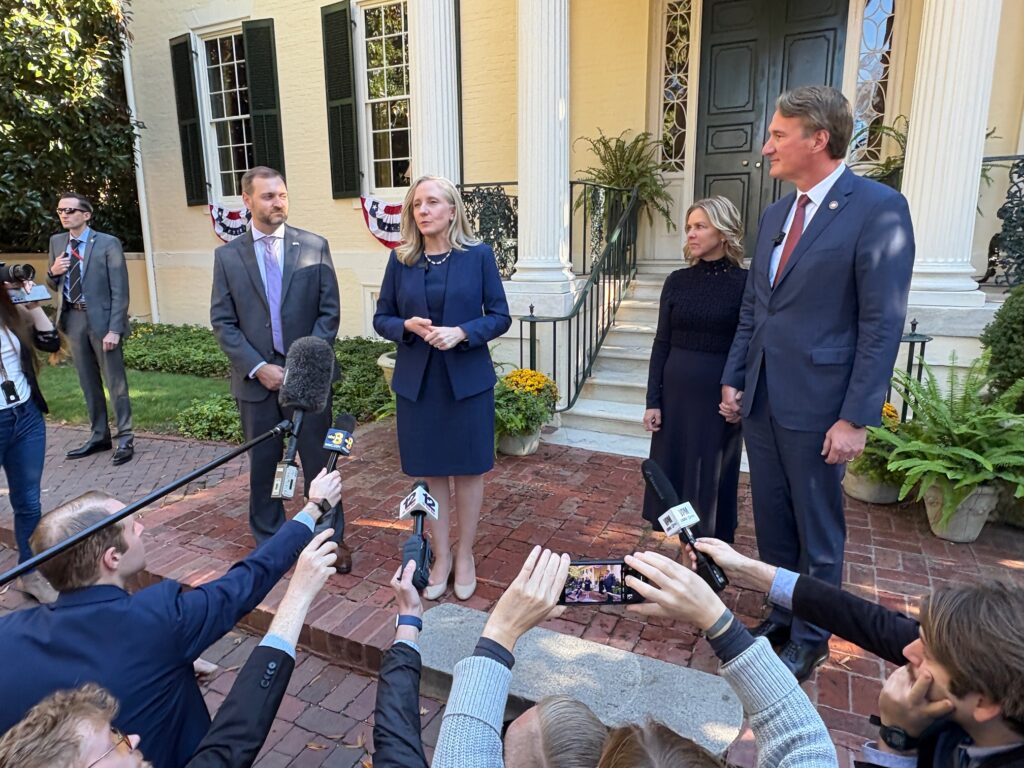The federal pressure campaign targeting college campuses has forced a number of elite universities to strike deals with the Trump administration. But last week’s blow up over the search for the next president of the University of Virginia shows that federal bullying is just as likely to create a political mess as substantive reform.
Gov.-elect Abigail Spanberger (D), fresh off of a decisive win, asked the university’s board to stop searching for a replacement of former president James E. Ryan until she takes office in January — and appoints five new members to the board. She attributed Ryan’s June resignation to “federal overreach” and raised questions about the “legitimacy” of the ongoing search.
Outgoing Gov. Glenn Youngkin (R) punched back, instructing the board to continue the search and accusing Spanberger of interfering with her alma mater before she takes office.
Some Democrats, energized by gains in the House of Delegates, are calling on Spanberger to go further and clear out Youngkin-appointed boards at every public university across the state. Spanberger has not yet said if she will do so.
The drama is still playing out, but the chaos consuming Charlottesville illustrates why using the federal government to extract personnel or financial concessions from universities often causes more trouble than it’s worth.
On Friday, Ryan disputed the account previously offered by Youngkin about his departure. He wrote in a letter to U-Va.’s faculty senate that the board told him he needed to resign within four hours or the “DOJ would basically rain hell on UVA,” including blocking hundreds of millions of dollars in funding. Ryan chose to resign. Subsequently, the university struck a deal with the Justice Department that spared the university from a financial penalty and oversight by a federal monitor.
Justice Department officials insist that they never asked for Ryan’s resignation or offered any deal predicated on him stepping down, but Ryan said members of the board told him otherwise. For their part, board leaders said there was never a quid pro quo but that the Justice Department indicated that it did not have confidence in Ryan to address the department’s concerns. Ryan himself is unsure who is telling the truth.
College campuses have become epicenters of left-wing excess and would certainly benefit from changing course. It’s totally reasonable to expect them to comply with the Supreme Court’s 2023 decision restricting race-conscience admissions policies. More viewpoint diversity on campus would mark a significant improvement upon the status quo. But the nature of the campaign to oust Ryan opened the door for Spanberger to question the legitimacy of the process to replace him. If the search for the next president of Mr. Jefferson’s University turns into a political football, it will damage campus reform efforts in the Commonwealth. If Youngkin’s board races ahead to name a successor, that person will inevitably have a fraught relationship with the next governor.
The lesson here is that there are better ways to improve culture at higher education institutions than federal bullying. Some universities, both public and private, are making progress in addressing ideological imbalances within higher education. For example, Johns Hopkins University is collaborating with the American Enterprise Institute, a right-leaning think tank, on improving viewpoint diversity and bringing more conservative voices into academia. The University of Florida’s Hamilton Center, founded in 2022 with $3 million in state funds, is another example of the pendulum swinging toward intellectual diversity and free expression.
Such attempts at building viewpoint diversity and challenging progressive campus orthodoxies will probably be more successful at achieving sustained reform than federal micromanagement of hiring and firing decisions.
The post The University of Virginia’s campus crackup
appeared first on Washington Post.




